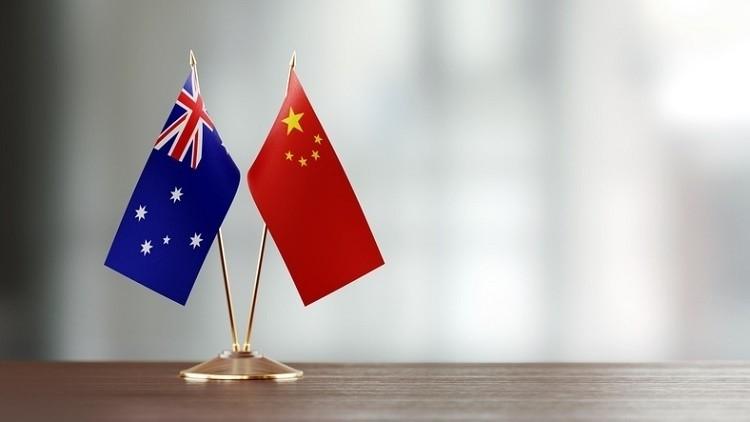Chinese investment in Australia declined 61 percent to just over $780 million in 2020 amid a diplomatic rift.
There were only 20 Chinese investments made in 2020, way below the 111 recorded in 2016.
Last year's decline was preceded by a 47 percent drop from 2019 when the Chinese invested $1.57 billion in Australia.
Dr. Shiro Armstrong, director of the East Asian Bureau of Economic Research, noted that China's investment in Australia dropped faster than global foreign investment last year, which fell 42 percent.
After investing across all sectors of Australia's economy in recent years, Chinese firms only bought into real estate with $357 million, mining with $321 million, and manufacturing with $119 million.
The drop in Chinese investments is partly due to Australia's investment settings during the Covid-19 pandemic when every proposed investment was scrutinized by Australia's Foreign Investment Review Board (FIRB).
Previously, only investments worth $930 million or $213 million for investors from countries without a free trade agreement with Australia, were reviewed by the FIRB.
The purpose of the review, which lasts from 30 days to six months, was to prevent distressed Australian assets from being acquired by foreign groups. However, it also delayed investments as the FIRB dealt with a backlog.
The Australian government also added a national security test to its foreign investment laws in July and allowed the treasurer to cancel deals retrospectively.
In August, Treasurer Josh Frydenberg stopped the deal selling Lion Dairy and Drinks, Kirin's wholly-owned Australian subsidiary, to China Mengniu Dairy for $600 million. Trade ties between Australia and China were strained since the former called for a rigorous investigation into the origins of the Covid-19 pandemic in April.
China has since imposed tariffs or trading restrictions on Australian products, such as wine, lobster, beef, and barley. The tensions also impacted coal.
However, China's demand for Australian iron ore put the trade balance between the two countries on a six-month high in December.



 China Extends Gold Buying Streak as Reserves Surge Despite Volatile Prices
China Extends Gold Buying Streak as Reserves Surge Despite Volatile Prices  Japanese Pharmaceutical Stocks Slide as TrumpRx.gov Launch Sparks Market Concerns
Japanese Pharmaceutical Stocks Slide as TrumpRx.gov Launch Sparks Market Concerns  South Africa Eyes ECB Repo Lines as Inflation Eases and Rate Cuts Loom
South Africa Eyes ECB Repo Lines as Inflation Eases and Rate Cuts Loom  U.S.-India Trade Framework Signals Major Shift in Tariffs, Energy, and Supply Chains
U.S.-India Trade Framework Signals Major Shift in Tariffs, Energy, and Supply Chains  Gold Prices Slide Below $5,000 as Strong Dollar and Central Bank Outlook Weigh on Metals
Gold Prices Slide Below $5,000 as Strong Dollar and Central Bank Outlook Weigh on Metals  Gold and Silver Prices Rebound After Volatile Week Triggered by Fed Nomination
Gold and Silver Prices Rebound After Volatile Week Triggered by Fed Nomination  Dollar Near Two-Week High as Stock Rout, AI Concerns and Global Events Drive Market Volatility
Dollar Near Two-Week High as Stock Rout, AI Concerns and Global Events Drive Market Volatility  Singapore Budget 2026 Set for Fiscal Prudence as Growth Remains Resilient
Singapore Budget 2026 Set for Fiscal Prudence as Growth Remains Resilient  Dow Hits 50,000 as U.S. Stocks Stage Strong Rebound Amid AI Volatility
Dow Hits 50,000 as U.S. Stocks Stage Strong Rebound Amid AI Volatility  Vietnam’s Trade Surplus With US Jumps as Exports Surge and China Imports Hit Record
Vietnam’s Trade Surplus With US Jumps as Exports Surge and China Imports Hit Record  Japan Economy Poised for Q4 2025 Growth as Investment and Consumption Hold Firm
Japan Economy Poised for Q4 2025 Growth as Investment and Consumption Hold Firm  Trump Signs Executive Order Threatening 25% Tariffs on Countries Trading With Iran
Trump Signs Executive Order Threatening 25% Tariffs on Countries Trading With Iran  Trump Lifts 25% Tariff on Indian Goods in Strategic U.S.–India Trade and Energy Deal
Trump Lifts 25% Tariff on Indian Goods in Strategic U.S.–India Trade and Energy Deal  Fed Governor Lisa Cook Warns Inflation Risks Remain as Rates Stay Steady
Fed Governor Lisa Cook Warns Inflation Risks Remain as Rates Stay Steady  Russian Stocks End Mixed as MOEX Index Closes Flat Amid Commodity Strength
Russian Stocks End Mixed as MOEX Index Closes Flat Amid Commodity Strength  U.S. Stock Futures Slide as Tech Rout Deepens on Amazon Capex Shock
U.S. Stock Futures Slide as Tech Rout Deepens on Amazon Capex Shock  Thailand Inflation Remains Negative for 10th Straight Month in January
Thailand Inflation Remains Negative for 10th Straight Month in January 































